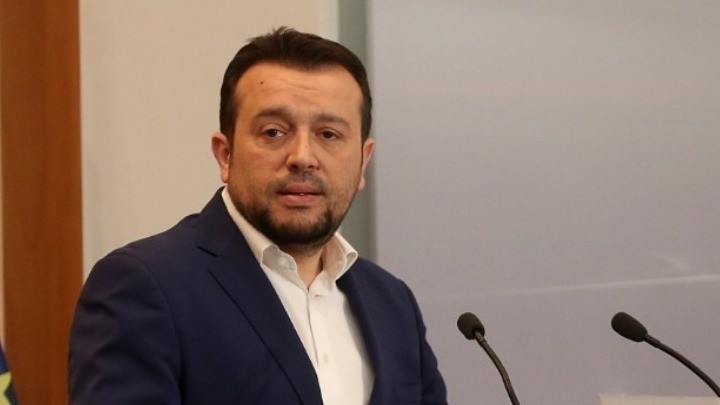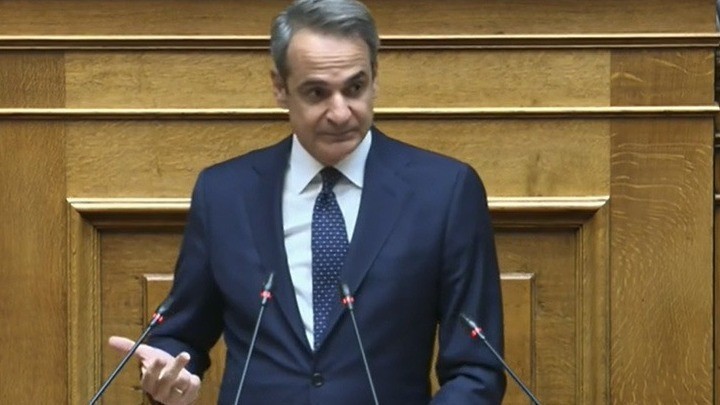
PM Mitsotakis: This year was the most difficult in the last 40 years

Prime Minister Kyriakos Mitsotakis on Wednesday initiated an off-the-agenda debate in Parliament focusing on the natural disasters during the 2024 fire season, as well as the government’s initiatives to enhance civil defence, support affected citizens and repair damaged infrastructure.
“Let’s look at the actual facts, what happened in this period and what statistics we should keep in mind. The first fact is that this year was the most difficult of the last 40 years. We had persistently higher-than-average temperatures, excessively high aridity, strong winds after a period of no rain and very little snow in the mountains,” said Kyriakos Mitsotakis.
The premier said that the country had reached fire risk category 4 and 5 earlier than in other year and that the state mechanism had been on high alert for six months, while he thanked all the personnel involved.
Mitsotakis noted that there had been 9,101 fires in 2024 compared to 7,163 the previous year. He also said that 175,400 hectares were burned in 2023 and this had fallen to 44,000 hectares this year, while the average of the last 20 years had been 50,000 hectares.
“The benchmark cannot be that we will not have any fires at all,” he noted. What mattered, he added, was to ensure that the damage stayed below average levels and that the land burnt was not large, mature forests that would not easily be rejuvenated. He pointed out that less land was burned per fire in 2024, while there was much less burnt forest. “If the 10,000 hectares burnt, only about 1,000 were true forest. The rest was rocky scrubland whose natural recovery is much easier,” he pointed out.
“Obviously the problem is not only Greek. Look at what happened in Portugal in September. Look at what happened in the US. It is a reality that comes with the climate crisis. The attacks will be more and more frequent. The Mediterranean is an area at the epicentre of the climate crisis and will be tested more and more often,” he underlined.
Outlining the government’s actions, he said its strategy was based on four plus one pillars, which he identified as prevention (AntiNero Programmes I, II and III and clearing of land, stricter penalties for arson and incentives for home insurance). In terms of putting out fires, he highlighted the use of technology to quickly locate and put out fires, such as the drones patrolling Attica’s skies on a 24-hour basis and the decision to have fire-fighting aircraft already loaded with water patrolling the region on days of high fire risk, so that they could immediately douse flames when fires first started. He noted that this swift response was effective in putting out the overwhelming majority of fires before they had a chance to grow. He said that this surveillance system should now be extended to more regions of Greece.
Mitsotakis also emphasised the use of the 112 emergency number to organise evacuations and avoid human casualties, making protection of human life the top priority.
A third pillar for tackling fires was better coordination of all the services involved in handling natural disasters, from weather reports to fire-fighting volunteers, while equally important was the handling after the fires, how quickly damage was recorded and compensation paid to fire victims, he added, as well as action to deal with the environmental repercussions in the aftermath of fires, such as reforestation or works to stop erosion and flooding.
Lastly, the prime minister spoke about the Aegis programme, which he called the “most crucial pillar of the new civil defence doctrine, which is none other than a significant investment in structures and human resources that concern the future, an organised and autonomous programme to enhanced civil defence infrastructure with a total budget of 2.1 billion euros.
source ANA-MPA
Ακολουθήστε τη HELLAS JOURNAL στη NEWS GOOGLEIncreased tourist traffic, reduced revenues, in the period January-August 2024, BoG reports

